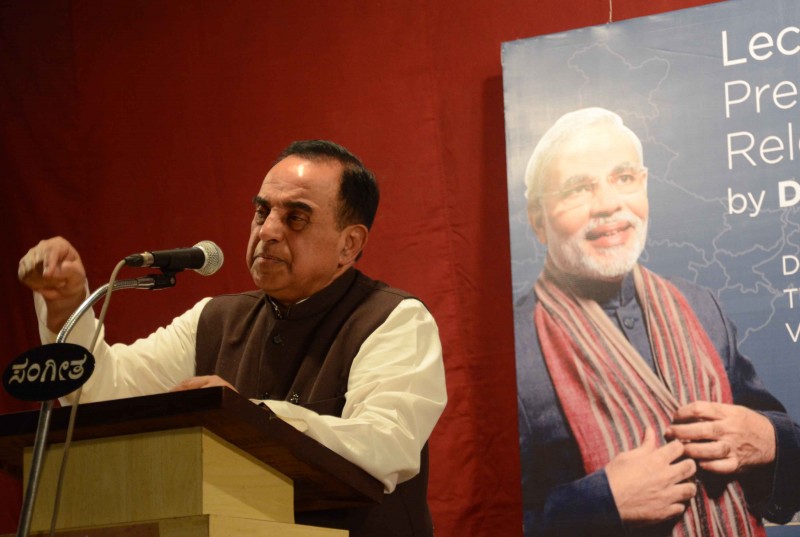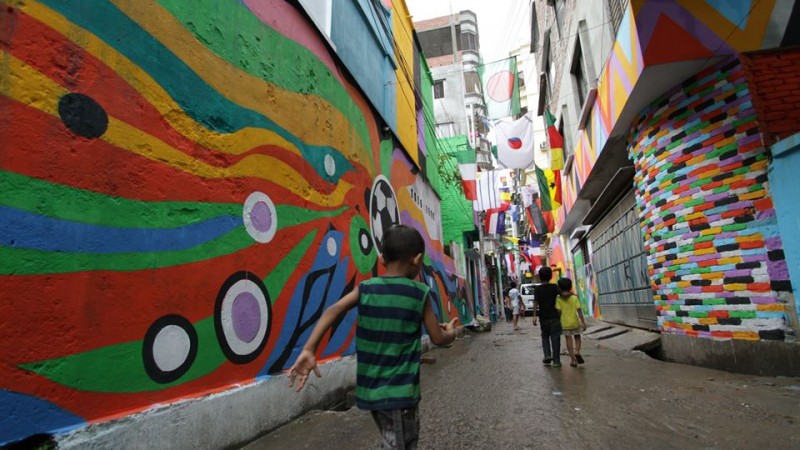 |
| Subramanian Swamy speaks in Mangalore, India on 17/12/13 |
Subramanian Swamy, a leading figure of the conservative Bharatya Janata Party (BJP) whose prime minister candidate is Narendra Modi, caused much outrage in neighboring Bangladesh when he mentioned in an election rally in Assam that Bangladesh should compensate India for its undocumented migrants there by giving the country one-third of its land.
He also claimed that since the independence of Bangladesh from Pakistan in 1971, one-third of Bangladesh's Muslim population migrated to India. According to him, Bangladesh should take them back or hand over one-third of the land to India.
There are no reliable figures for how many Bangladeshi immigrants are in India, but a significant number of Bangladeshis do migrate to India to reunite with family members, for job opportunities, to escape environmental crises and other reasons. The wave of people in the past decade has prompted India to step up security along its border with Bangladesh, including the installation of barbed-wire fences.
Bangladeshi newspapers first picked up Swamy's remarks from Assam's Bengali daily Samayik Prasanga on 19 April. Along with Nepal, Bhutan, Pakistan and China, the country's political analysts are closely following the election as international relations will be shaped by the policies of the parties that win.
Angry reactions soon followed. User Veja Beral on forum projanmo.com commented:
BJP is an anti-Bangladeshi party. If it comes to power, it will mean trouble for Bangladesh. The [long] pending issues like the Teesta water-sharing contract and border disputes will remain unresolved and all implemented treaties will be stopped by the Modi government.The user also wrote:
There are a number of undocumented Bangladeshis in India that everybody knows. But the astronomical figure of 50 million (which is BJP's claim) is illogical and untrue. Maybe BJP is purposefully campaigning the figure 50 million instead of 500,000.Shamim Sujaet opined on the blog Shobdoneer:
As if Bangladesh is a plaything. You can shape it however you like.Meanwhile, Bangladeshi hacker group "Bangladesh Cyber 71" allegedly hacked more than 300 of the Indian government's websites in protest of Swamy's comments. The admin of the group told BanglaNews24.com that they will continue the attacks until BJP withdraws the statement.
 |
| Screenshot of a website hacked by "Bangladesh Cyber 71" |
Narendra Modi, the prime minister candidate from BJP, doubled down on the comments during a rally in West Bengal:
You can write it down. After May 16, these Bangladeshis better be prepared with their bags packed.Undocumented Bangladeshi immigrants have been a part of the BJP's agenda, which claims that they are being used as a vote bank for the ruling Indian National Congress party. But Modi's comments indicate that this could be a political weapon they would use against their neighbor if the party comes to power.
This isn't a case of one-way migration, however. India would stand to lose its fifth largest source of remittance if relations were to sour. Around half a million Indians work in Bangladesh, and they remitted 3.716 million US dollars to India last year.
This post was written in collaboration with Abdul Aleem Khan





























